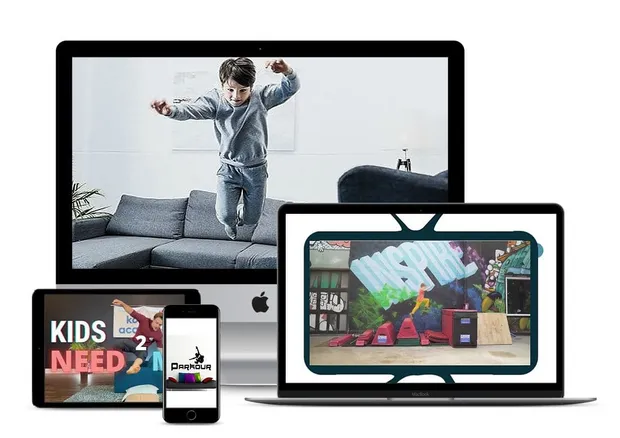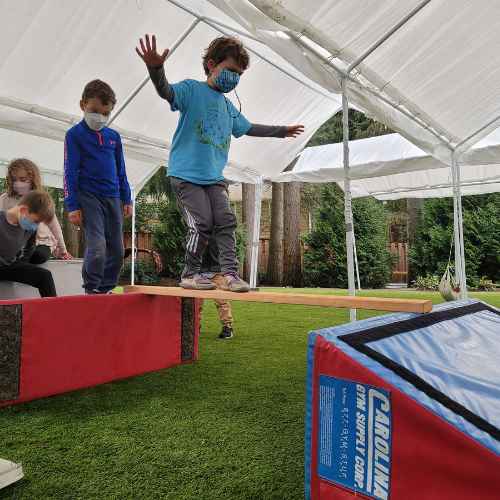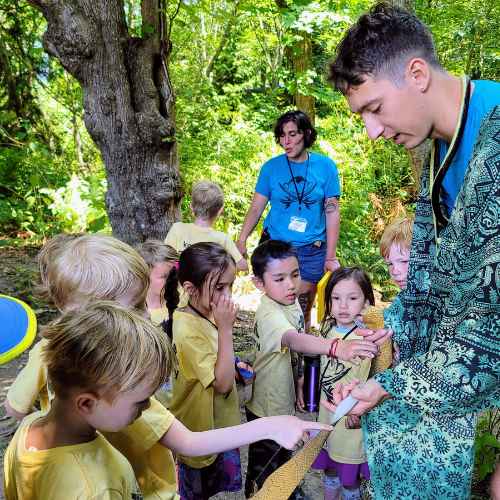
As a parent, you want your child to grow into a confident, resilient individual who approaches life’s challenges with enthusiasm and determination. The key to fostering these qualities lies in nurturing a growth mindset. This approach encourages kids to embrace challenges, learn from setbacks, and view effort as a path to mastery. By incorporating growth mindset activities into your child’s daily life, you can help them develop the tools they need to thrive.
In this guide, you’ll learn what a growth mindset is, why it matters, and how to support your child’s journey toward becoming more self-reliant. Whether you’re introducing them to new ideas or reinforcing the lessons they’re already learning, these strategies will equip you to nurture their confidence and independence.
What Is a Growth Mindset & Why Does It Matter?
A growth mindset is the belief that abilities and intelligence can be developed through effort, perseverance, and learning. The term is coined by psychologist Carol Dweck who maintains that the abilities are not static and can be changed or adapted.
Why is this so important for kids? A growth mindset enables children to view challenges as opportunities to learn rather than obstacles. They are more likely to persist in the face of difficulty, bounce back from failure, and continuously improve. This perspective fosters resilience, creativity, and a love for learning—all essential traits for success in life.
When you teach your child to adopt a growth mindset, you’re equipping them with skills that go far beyond academics or extracurricular activities. You’re empowering them to embrace life’s ups and downs with confidence and self-reliance.
Why Failing & Growing From Mistakes Is Important
Failure is an inevitable part of life, but for many children, it can feel overwhelming. However, failure is also one of the greatest teachers. When kids understand that mistakes are stepping stones to success, they’re more likely to take risks, explore new ideas, and develop grit.
To help your child view failure as a learning opportunity:
- Encourage reflection. After a setback, ask your child what they learned from the experience.
- Avoid judgment. Reassure them that mistakes are normal and expected.
- Celebrate effort. Emphasize the value of trying over succeeding.
When your child struggles with a math problem or loses a soccer game, use these moments to reframe failure as a chance to grow. Say things like, “It’s okay to make mistakes—that’s how you learn!” or “What can we try differently next time?” This helps shift their focus from the outcome to the process.
By encouraging your child to see the value in failure, you’re helping them build resilience and teaching them that their worth is not tied to perfection. Instead, it lies in their ability to grow, adapt, and persevere.
Mistakes also help children develop empathy and compassion. By learning to process their own failures, kids are better equipped to support others facing similar challenges.
How Parents Unknowingly Hold Kids Back
As parents, it’s natural to want to protect your child from pain and disappointment. However, overly shielding them from challenges can unintentionally hinder their development. When kids don’t experience struggle, they miss out on the opportunity to build problem-solving skills and confidence in their abilities.
Some common ways parents may unknowingly hold their kids back include:
- Praising only results, not effort. Focusing solely on outcomes like grades or wins may discourage kids from trying harder tasks.
- Stepping in too quickly. Solving problems for your child instead of letting them figure it out prevents them from learning independence.
- Avoiding discussions about failure. Skipping these conversations can reinforce the idea that failure is something to fear.
- Over-scheduling activities. While extracurriculars are beneficial, too many structured activities can leave little room for self-directed problem-solving and creativity.
- Over-rewarding success. Consistently offering rewards for achievements can shift a child’s focus from learning to external validation.
Consider balancing your involvement by stepping back and allowing your child to experiment, take risks, and solve problems on their own. This hands-off approach might feel counterintuitive, but it’s key to fostering independence.
Reframing Your Relationship With Failure & Winning
It’s not just kids who need to reframe how they view failure—parents play a big role too. The way you talk about setbacks and success sets the tone for how your child perceives them.
Here’s how to model a healthy relationship with failure:
- Celebrate effort, not just outcomes. Praise your child for their hard work, creativity, and persistence, regardless of the result.
- Share your own mistakes. Let your child know about times when you failed and what you learned from those experiences.
- De-emphasize perfection. Reinforce the idea that nobody is perfect and that growth is a lifelong journey.
By normalizing failure and highlighting the lessons it brings, you create an environment where your child feels safe to take risks and embrace challenges.
One often-overlooked aspect of modeling growth mindset behaviors is teaching kids to handle success with humility. While it’s important to celebrate wins, placing too much emphasis on outcomes can create unnecessary pressure.
When your child wins, try to focus on the process that led to their success. Ask questions like:
- “What did you learn from this experience?”
- “What part of the process was the hardest, and how did you get through it?”
This approach helps kids recognize that effort and growth are more meaningful than the result. At the same time, they learn to appreciate the value of teamwork, perseverance, and continuous improvement.
Introducing Kids to Growth Mindset Activities
One of the best ways to instill a growth mindset is through hands-on activities that make learning fun and engaging. These growth mindset activities teach kids to tackle challenges, think critically, and approach problems with creativity and determination.
Before diving into specific activities, explain the concept of a growth mindset to your child in simple terms. Use phrases like:
- “Your brain is like a muscle—the more you use it, the stronger it gets!”
- “Mistakes are proof that you’re learning.”
With this foundation in place, your child will be ready to dive into growth mindset activities that reinforce these principles in a playful and meaningful way.
Introducing growth mindset activities into your child’s routine doesn’t require a complete overhaul of their schedule. Many simple, everyday interactions can reinforce these ideas:
- Turn daily chores into opportunities for problem-solving. For example, ask your child how they might organize their toys more efficiently.
- Use family game nights to model positive attitudes about losing. Highlight moments of strategic thinking or creativity, regardless of who wins.
When growth mindset lessons are woven into your family’s daily life, they become second nature to your child.
16 Growth Mindset Activities That Help Kids Grow Through Adversity
Here are some practical and engaging growth mindset activities you can introduce to your child:
- Set Learning Goals Together
Help your child set specific, achievable goals, like reading a certain number of books or mastering a new skill. Break the goal into smaller steps to show progress and celebrate each milestone. - The Power of Yet
Teach your child to add “yet” to statements like “I can’t do this.” For example, “I can’t solve this puzzle… yet.” This simple shift encourages optimism and perseverance. - Journaling About Challenges
Encourage your child to write or draw about a challenge they faced and how they overcame it. Reflecting on their experiences helps them see how much they’ve grown. - Growth Mindset Storytime
Read books that emphasize perseverance and learning from mistakes, such as “The Most Magnificent Thing” by Ashley Spires or “Your Fantastic Elastic Brain” by JoAnn Deak. - Puzzle Challenges
Provide puzzles or brain teasers that are slightly above your child’s skill level. Remind them it’s okay to struggle and offer hints rather than solutions. - Build Something Together
Engage in a collaborative project like building a model or creating a craft. Talk about the process and how you solved problems along the way. - Failure Bingo
Create a bingo board with different challenges (e.g., “Try something new,” “Make a mistake and learn from it”). Celebrate completing the board. - Practice Mindful Breathing
Teach your child simple mindfulness techniques to manage frustration and stay calm during challenges. - Role-Playing Resilience
Act out scenarios where your child faces a setback, like losing a game. Discuss how they feel and brainstorm ways to move forward. - Compliment Effort in Others
Encourage your child to notice and praise hard work in their peers or siblings. This fosters empathy and reinforces the value of effort. - “What Went Well” Reflections
At the end of each day, have your child list three things that went well and why. This practice helps them focus on their strengths and recognize how their efforts contribute to positive outcomes. - Growth Mindset Art Projects
Provide art supplies and encourage your child to create something they’ve never tried before. Whether they’re painting, sculpting, or crafting, emphasize that the process is more important than the final product. - Physical Challenges
Introduce activities like climbing, yoga, or martial arts, which naturally incorporate trial and error. These activities help kids build both mental and physical resilience. - Create a “Not Yet” Wall
Dedicate a space where your child can post tasks or goals they’re working on. Label it “Things I Haven’t Mastered… Yet.” This visual reminder reinforces the idea that growth takes time. - Gratitude Journals
Encourage your child to write about things they’re grateful for, even on difficult days. This practice helps them reframe challenges and focus on positives. - Collaborative Problem-Solving
Work with your child to tackle a shared challenge, such as assembling a complex puzzle. Discuss the strategies you used and celebrate your teamwork.
By engaging in these growth mindset activities, you empower your child to see challenges as opportunities to grow stronger, both emotionally and mentally.
Helping your child adopt a growth mindset is one of the greatest gifts you can give them. Through encouraging their efforts, normalizing failure, and introducing engaging growth mindset activities, you’re empowering them to embrace challenges and grow into confident, self-reliant individuals.
Remember, every small step counts. With your guidance, your child will learn that mistakes are opportunities, persistence pays off, and growth is always possible.
If you’re in the Seattle metro and seeking either an after school program or summer camp for your child, please explore all of our options.
And of course, follow us on YouTube for brain break videos that get kids moving with subtle doses of social emotional learning built in.
GET Access to the ULTIMATE PLAY DATE PACKAGE (Value: $49) for FREE!


7-Day Crystal Shard Adventure
Unleash your child’s potential with our 7-day crystal shard movement adventure!




